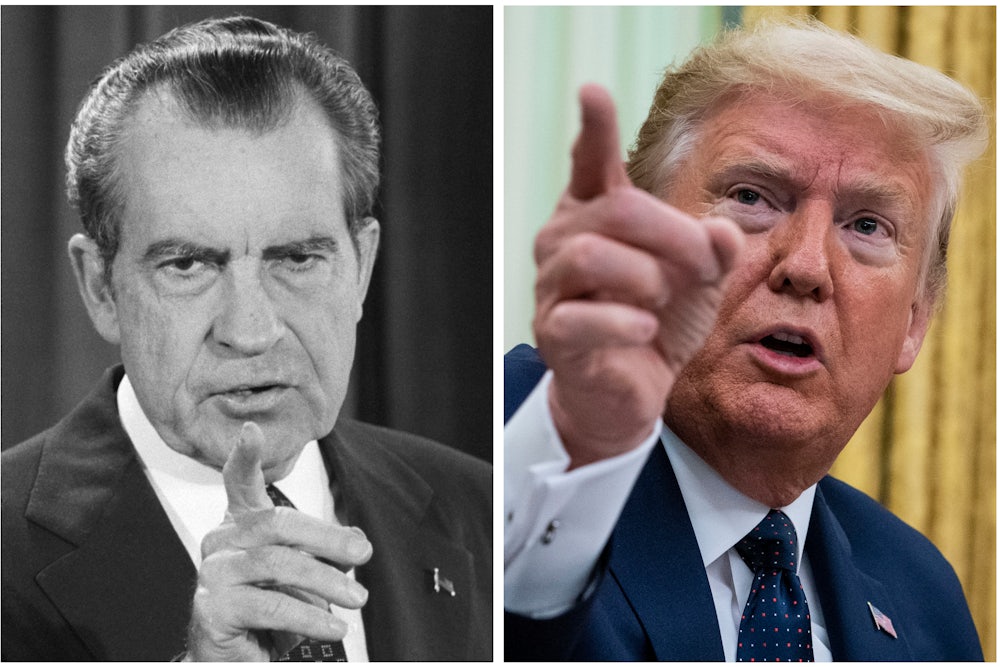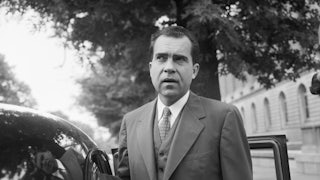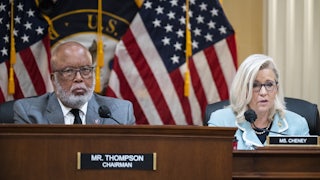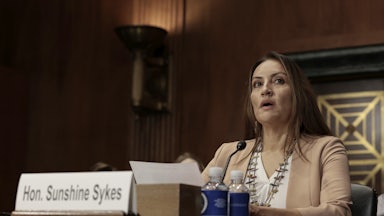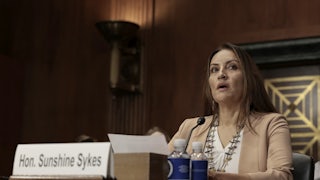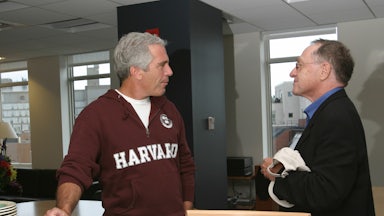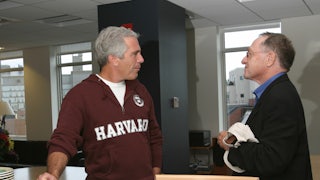Fifty years ago today, five burglars working for President Richard Nixon’s reelection campaign were arrested for breaking into the Democratic National Committee headquarters at the Watergate complex. It’s an anniversary that raises disconcerting parallels with the events of January 6, 2021. But the differences are more instructive. Watergate was, and remains, a whodunit (specifically, a who-ordered-it), whereas there’s no mystery at all as to whether efforts to overturn the last presidential election, including the insurrection at the U.S. Capitol, were instigated by a sitting president. Even the Wall Street Journal editorial board, in the immediate aftermath, opined that Trump “incited” the mob and called on him to resign.
The House committee investigating January 6 is performing important work concerning actions that pretty clearly constituted a criminal conspiracy with a violent outcome. It’s valuable to learn how many people around President Donald Trump pretended in public to believe that he won the election, including Trump’s own daughter Ivanka and his campaign manager, Bill Stepien, when they didn’t believe that at all. But this testimony is not exactly surprising. It’s long been obvious to anyone paying attention that Trump tried (and is still trying) to subvert the 2020 election. Indeed, it was obvious before Election Day, because Trump, anticipating that he would lose, started discrediting the outcome before a single ballot was cast. Assembling phony evidence after the fact was, for Trump and his band of loyalists, a formality. And while it’s doubtful Trump instructed anyone specifically to smash windows and kill police officers, Trump’s refusal to lift a finger while he watched the mayhem unfold on television—and his speech immediately before the riot urging his followers to go to the Capitol and “fight like hell”—is sufficient to demonstrate his participation in an attempted coup d’état.
Trump knew in real time that his whipped-up supporters were breaking into the Capitol. Watergate was different. Nixon may or may not have known on June 17, 1972, that his reelection campaign was breaking into the Watergate. It has never been established that Nixon ordered the break-in. My own view is that he did. The evidence is circumstantial, but as I noted on the fortieth anniversary of Nixon’s 1974 resignation, journalists and historians have seldom bothered even to look at it. Please set aside for a moment January 6, 2021—it’s Friday, after all—and allow me to present the evidence about June 17, 1972.
“Today, we’ll never really know the full truth about Watergate,” writes Garret M. Graff in Watergate: A New History, published in February 2022.
The remaining mysteries are spread among too many people, many of whom are now dead, their secrets buried alongside them. There remain big, unanswered—and perhaps now forever unknowable—questions even about the central Watergate break-in itself: Who ultimately ordered it? What was the actual purpose and target of the burglars?
This ¿quién sabe? stance is nothing new. Even back in the early ’70s, commentators were forever downplaying the question of whether Nixon ordered the break-in. “The cover-up,” they said, “is worse than the crime.” It became a cliché, first about Watergate and later about every Washington scandal. The cover-up was what mattered; the underlying crime was trivial.
Like a lot of Washington truisms, this was never true. Is Trump chief of staff Mark Meadows’s reported burning of documents in his White House fireplace worse than his participation in a conspiracy to overturn an election? I’d say both are pretty bad. When people argue that the cover-up is worse than the crime, what they really mean is that the cover-up is easier to prove than the crime. It was strong evidence, captured on secretly recorded White House tapes, that Nixon participated in the cover-up—and not evidence that Nixon initiated the crime being covered up—that prompted his resignation in 1974.
We have strong reason to think that Nixon probably ordered the break-in. Let’s start with what Sherlock Holmes would call the dog that didn’t bark. The White House tapes have Nixon professing little more than puzzlement that five bozos with close connections to his reelection campaign and the White House got caught committing what his press secretary called “a third-rate burglary attempt.” Nixon hints that this subdued reaction is feigned. (“My God, the committee isn’t worth bugging, in my opinion. That’s my public line.”) More important, though, is that Nixon, who was known to have a temper, doesn’t get angry. If Nixon never possessed advanced knowledge of the break-in, wouldn’t he be furious to learn about it after the fact? Put yourself in Nixon’s black wingtips. Imagine you have a subordinate—in this instance John Mitchell, Nixon’s former law partner and attorney general and chairman of his reelection campaign, or possibly Mitchell’s deputy, Jeb Stuart Magruder—who ordered up a crime committed in your name. Now imagine that the crime becomes known publicly. You’d be apoplectic, right? Nixon wasn’t. Not even after it became evident that the crime was putting his presidency in peril.
Some will argue that Nixon was untroubled by the Watergate break-in because, as we’d later find out, his administration was committing illegal break-ins on a routine basis. Even Mark Felt, the FBI associate director later unmasked as Deep Throat, was ordering them up. Felt would be convicted (though later pardoned by President Ronald Reagan) of conspiracy to commit warrantless “black bag” operations against the Weather Underground, a terror group protesting the Vietnam war. Ex-President Nixon testified at Felt’s trial that he hadn’t ordered the black bag operations himself, but that Felt had had his tacit approval to conduct them. Perhaps, you might argue, Nixon presumed similarly that the Watergate burglars had his tacit approval to break into the offices of the DNC.
The trouble with this argument is that Nixon, a lawyer, would have recognized a significant legal difference between a break-in committed in the service of public safety or national security and a break-in committed in the service of a political campaign. Neither was ultimately judged legal, but it was possible for Nixon to believe that a break-in to defend a perceived government interest was sufficiently kosher that it didn’t require presidential sign-off. Freelance political break-ins, on the other hand, were fraught with peril.
As it happens, we know that Nixon himself approved in 1970 warrantless domestic burglaries and surveillance against Vietnam protesters as part of a report assembled by White House aide Tom Huston. He later withdrew that approval at the behest of FBI chief J. Edgar Hoover (who didn’t welcome White House meddling in his own illegal activities). But the White House tapes caught Nixon in June 1971 ordering a break-in of the Brookings Institution to steal some files on the Vietnam War. “Bob, now you remember Huston’s plan?” Nixon said. “Implement it.… I mean, I want it implemented on a thievery basis. Goddamn it, get in and get those files. Blow the safe and get it.” The Brookings heist wasn’t carried out, but as Ken Hughes of the University of Virginia’s Miller Center explained in his 2014 book Chasing Shadows: The Nixon Tapes, the Chennault Affair, and the Origins of Watergate, Nixon believed that the Brookings files (which may not even have existed) contained evidence of the 1968 Nixon campaign’s secret efforts to sabotage President Lyndon Johnson’s diplomatic efforts to end the Vietnam War. This was a man who was extremely sensitive to—indeed, often quite paranoid about—the threat of political attack.
The reason for the June 17 break-in, according to the memoirs of Watergate burglar G. Gordon Liddy, “was to find out what [DNC Chair Larry] O’Brien had of a derogatory nature about us.” Liddy said he didn’t know what the derogatory material was, and it’s unclear what the purpose was of an undetected earlier DNC break-in to bug some phones. The derogatory information might have been an illegal half-million-dollar contribution that the military junta then ruling Greece gave Nixon’s 1968 campaign. A Greek journalist had shared information with O’Brien about the contribution, and we know Nixon was worried about it. Or it might have been information about $100,000 that the reclusive billionaire Howard Hughes gave Nixon. We know Nixon worried O’Brien knew about that, too, because O’Brien did some lobbying for Hughes. The Hughes theory was favored by Magruder and by Nixon’s chief of staff, H.R. Haldeman; it’s also favored by Terry Lenzner, chief investigator for the Senate Watergate committee, and by Ron Rosenbaum, my favorite Watergate scholar. I was intrigued to learn recently, from a Washington Post profile of Spencer Oliver, whose DNC phone was tapped—perhaps mistakenly—in the earlier, undetected break-in, that Oliver’s father had also lobbied for Hughes.
Very possibly the suspected derogatory material concerned both the Greek contribution and the Hughes gift. The point is that these were secrets closely held by Nixon—secrets very much like Nixon’s secret about disrupting the Vietnam Paris peace talks, which we know prompted Nixon to order up the Brookings caper.
Was Nixon’s Brookings outburst a gateway drug to ordering a break-in on purely political grounds? The three people likeliest to know are dead. Nixon died in 1994. Mitchell died in 1988. Magruder died in 2014. All three denied ordering it themselves. It’s virtually impossible all three told the truth. Mitchell never fingered Nixon, who outlived him by six years. In a Watergate memoir, published in January 1974, Magruder wrote: “I know nothing to indicate that Nixon was aware in advance of the plan to break into the Democratic headquarters.”
But when those words were written, Nixon wasn’t merely alive; he was still president. That could have intimidated Magruder. Later, when Nixon was nine years in the ground, Magruder changed his story. In a 2003 interview for a PBS documentary titled Watergate Plus 30, Magruder said he’d overheard Nixon order the break-in while Mitchell was on a phone call with Haldeman. According to Magruder, Nixon said: “John we need to get the information on Larry O’Brien, and the only way we can do that is through Liddy’s plan.” The specific Liddy plan (there were a lot of them) that Mitchell and Haldeman were talking about, and that Magruder and Haldeman had talked about before that on the same phone call, and that Mitchell and Magruder had talked about before placing the call, was the Watergate break-in.
Magruder’s allegation wasn’t given much credence by the experts, mainly because Magruder had three decades earlier lied his head off to Watergate investigators. But that was when he was trying to save his hide. By 2003, Magruder had no obvious motive to lie. He was out of politics entirely and had become an ordained Presbyterian minister.
I’m inclined to believe Magruder. Even if you don’t, though, don’t disrespect the question. Why did reporters let Nixon off the hook about this? Rosenbaum, writing in 2012, suggested that “journalists felt some guilt for hounding Nixon out of office (over the cover-up) and once that was done, didn’t want to seem to pile on by pinning the original crime on him.” Alternatively, maybe journalists and, later, historians, felt that to focus on the unsolved mystery of the break-in would somehow diminish the unchallengeable fact of Nixon’s guilt in the cover-up and various other scandals unearthed in the Watergate investigations and after. Whatever the reason, the question “Did Nixon order the cover-up?” deserves, after a half-century, more than a Gallic shrug.
